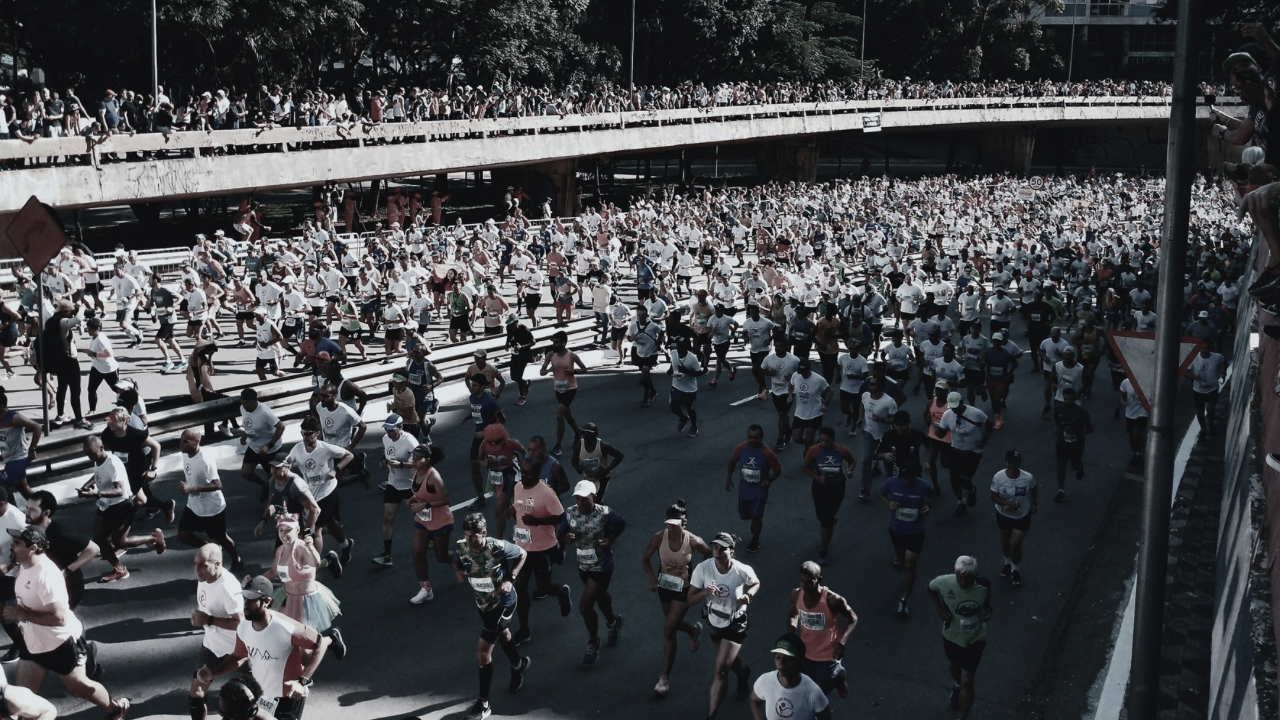
Racing
Welcome to race week. Yes week. The days leading up to your race can significantly determine your outcome.
More Info
Fueling
As stated in the "Nutrition and Hydration" section, your carbohydrate intake during running will change depending on the length and intensity of your effort. It is recommended that you bring fuel that you know agrees with your body and will not leave you rushing for a trash bin or bathroom during the race.
Carbohydrates are the fastest fuel source for our muscles to utilize for energy while running, and actually require less oxygen to metabolize than fat for the same amount of energy production.
Most casual activities lasting less than 90 minutes do not require a fueling strategy.
60-90 minutes with intensity: Consume 30 grams/hour of carbohydrates (gel or drink)
90 Minutes - 2 Hours: 30 grams/hour of carbohydrates (gels or drink)
2-3 Hours: 60 grams/hour of carbohydrates (gels or drink)
>3 Hours: 90 grams/hour of carbohydrates (gels or drink)
Hydration
The last thing you want is your performance to be negatively effected because you did not take in enough water during your race. Most runners should aim to take in between 8-16oz of water each hour of running. This may change up or down because of the weather. As stated above, even a 2% decrease in body weight from sweat loss can lead to significant performance impairment.
- Dehydration leads to decreased blood volume which will lead to an increase in heart rate. An increase in heart rate leads to increased energy expenditure which leads to the dreaded BONK, or having to significantly slow down.
- As we exercise, our core temperatures increase and we shunt blood to the surface of our skin to help with temperature regulation. Drawing an already decreased blood volume away from our muscles will likely mean decreased performance.
- If we have an elevated body temp because of decreased blood volume, we will also have a higher perceived exertion and a higher chance of a reduction in effort.
References:
Carb Loading
- Carb loading strategies are almost as personalized as footwear these days. Some people swear by 3 days carbo-loads, others 1. The most current research suggests that a 24-48 hour long carbo-load is sufficient.
- Most athletes should aim for 6-9 grams of carbohydrates per kg of body weight. For example, a 150lb person (68kg) would aim for between 400-600 grams of carbohydrates in the 1-2 days leading up to their race.
- Avoiding new and unfamiliar foods during your carbo-load is recommended
- Avoiding/Minimizing fat and fiber intake during your carbo-load is also recommended
Pre-Race Meal
A simple pre-race meal will be relatively low in fiber and fat and will consist of primarily of carbohydrates. Aim to be finished eating by 2 hours prior to the start of your race to aide in digestion and GI comfort. An example of my typical pre-race meal is 2 slices of toast/bagel with strawberry jelly, 2 applesauce pouches, one cup of black coffee, 12 ounces of Skratch Labs Hydration mix, and a banana.
Recommended Carbohydrate Options:
- Apple Sauce
- Rice
- Potatoes
- Sweet Potatoes
- Crackers
- Pretzels
- Cereal
- Bananas
- White bread/Bagels
- Jelly/Jam
- Pasta
- Juices
Caffeine
Caffiene can improve race day performance. There are arguments as to whether you should reduce your caffeine intake prior to race day to make it more “potent” during your race, but I have not found this to be helpful, and if anything it increases the stress during your taper and can be detrimental to race day. I suggest low to moderate doses of caffeine (~3-6 mg/kg), aiming to consume it 30-90 minutes prior to the start of your race.
Caffeinated gels - Because the absorption of caffeine takes ~30-90 minutes, timing of caffeinated gels is key. You do not likely want to be taking in these gels with less than an hour left in your race. I suggest front loading them if you will be using them.
Travel
If travel is included in your race plans, it is usually best to give yourself a few days to get accustomed to the race area, as well as to acclimate to the change in time zones if applicable. Travel is tough on the body because of the associated stress, chances of dehydration, as well as the possible hit to the immune system.
Because of this, emphasizing good sleep hygiene, nutrition, and water intake is imperative.
Often, when traveling, there is an emphasis on wanting to see new sites and experience new things. If setting a PB or shooting for the podium are goals, you need to be mindful of the total amount of walking that you are doing. Attempting to reduce your overall step count compared to normal is highly recommended as you get closer to race day. Remember, the forces that your legs experience while walking are similar to running, so excessive walking can leave your legs tired on race day.
Race Day Preparation
The details matter. Making sure the day before your race, or the day before you travel, that you have your needed shoes, socks, bottoms, belt (if used), top(s), sleeves, HRM, watch, chargers, sunscreen (if needed), lubricant, hat, glasses, headphones (if used), gels, and drink mixes can seem daunting, but is a must.